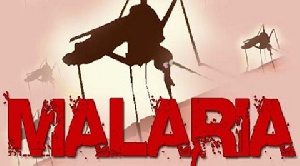 Lack of funds have hindered the activities of health centers with regards to treating malaria
Lack of funds have hindered the activities of health centers with regards to treating malaria
Funding for malaria activities in the Nkwanta North District of the Oti Region has been affected by investments in physical health infrastructure.
At a validation meeting at Kpassa, it was revealed that there is no direct spending on malaria activities in the District.
Mr. Nicholas Tetteh, a director for the malaria control program for the District, reported that he had since 2013 been submitting action plans on fighting the disease to the Assembly but had received no support.
“We have lots of activities to fund including public education using the radio and public address (PA) systems. All were captured in the medium-term plan, but nothing!
“Planning boldly told me they would use the money for other things. The terrain requires resources to survive but the only support comes from NGOs,” he lamented.
Mr. Alhassan Issah, the District Planning Officer, said dedicated investments in health infrastructure helped increase primary health coverage to 84 percent and adding that it is expected to hit 94 percent with the completion of four CHPS compounds.
“Our major priority is on resourcing the compounds. We have about 12 CHPS compounds and primary health facilities. Our area still has no hospital and still has CHPS compounds not equipped,” he said.
Also, Mr. Issah said money will be allocated for public sensitization on malaria by the District Assembly Common Fund (DACF).
“We are all aware of the 0.5 DACF but we have a medium-term work plan. 0.5 is used to support the budget. It is the guidelines that we use, not the law,” he said.
He said the expenditure consumption rate affected malaria support and has therefore called for straight guidelines for the allocation of funds.
“HIV and Disability funds have specific activities and cut across all districts. If there is a specific activity for malaria, we can implement it.
“Policy and DACF guidelines are not resonant, and health is not fully decentralized. Implementation is relative in circumstance. We may be doing it but not in the name of malaria,” the Planning Officer noted.